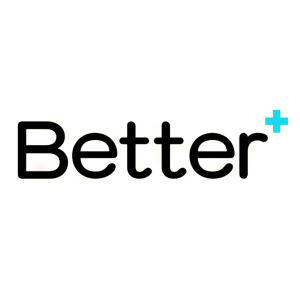Better Therapeutics Announces Publication of Cost-Effectiveness Analysis Demonstrating AspyreRx is More Effective and Less Costly than Standard of Care Alone
Over a lifetime horizon AspyreRx plus standard of care (SoC) was estimated to be superior to SoC alone providing more life years and improvements in quality of life at a lower cost
Study suggests that using AspyreRx can empower patients to better manage their diabetes, with the potential to reduce long-term complications
The study's authors conclude that, from a healthcare payer perspective, AspyreRx plus standard of care (SoC) was estimated to be both economically and clinically superior to SoC alone over the lifetime horizon. This suggests that the use of AspyreRx can empower patients to better manage their diabetes with the potential for lifelong advantages.
As the prevalence of diabetes and the associated economic burden continues to escalate, there is a pressing need for a novel treatment approach. According to the American Diabetes Association, the estimated national cost of diabetes in 2022 was
AspyreRx delivers a novel form of personalized cognitive behavioral therapy, backed by robust data demonstrating clinically meaningful and durable hemoglobin A1c reductions in patients with T2D. This latest study modeled the cost-effectiveness of AspyreRx plus SoC versus SoC alone in T2D over a lifetime horizon. The analysis followed the modeling precedent established by the Institute for Clinical and Economic Review (ICER) for the appraisals of T2D medications.
From a healthcare payer perspective, AspyreRx plus SoC versus SoC alone was dominant because AspyreRx was associated both with gains in quality-adjusted life years (QALYs) and cost savings of
“This study adds to the growing body of evidence supporting the potential efficacy and economic viability of digital therapeutics,” said Niall Davison, Senior Scientific Lead at Maple Health Group. “In an evolving landscape where technology converges with healthcare, recognizing the cost-effectiveness of integrating digital therapeutics into mainstream clinical practice is crucial in driving sustainable solutions that can benefit both patients and the overall healthcare system.”
"Despite many new drugs having been developed over the past decades to treat T2D, the prevalence and associated costs of this condition has continued to increase to unprecedented levels," said Frank Karbe, President and CEO at Better Therapeutics. "The publication of this data, demonstrating that adding AspyreRx to standard of care has the potential to be more effective and less costly than standard of care alone, exemplifies our vision to make societies healthier and meaningfully reduce healthcare costs.”
About Better Therapeutics
Better Therapeutics is a prescription digital therapeutics company developing a novel form of cognitive behavioral therapy to address underlying factors that sustain or worsen cardiometabolic diseases. The Company has developed a proprietary platform for the development of FDA-regulated, software-based solutions for T2D, heart disease and other conditions. The CBT delivered by Better Therapeutics’ PDTs is designed to enable changes in neural pathways of the brain so lasting changes in behavior become possible. Addressing the underlying causes of these diseases has the potential to dramatically improve patient health while lowering healthcare costs. Better Therapeutics’ clinically validated mobile applications are intended to be prescribed by physicians and reimbursed like traditional medicines.
For more information visit: bettertx.com
About AspyreRx
AspyreRx (formerly BT-001) was granted marketing authorization by the FDA in July 2023 as the first prescription-only digital therapeutic to treat adults with type 2 diabetes (T2D). AspyreRx is backed by robust data demonstrating clinically meaningful and sustained reduction in A1c as well as improvements in other markers of cardiometabolic health when used up to 180 days. Using proven techniques that target the underlying psychological, behavioral, and cognitive factors that sustain or worsen T2D, AspyreRx is a self-paced, engaging experience that patients can access from their smartphone. It is prescribed by a healthcare provider in 90-day increments, with proprietary CBT delivered digitally in a weekly step-by-step process. Through interactive therapy lessons, skill-building modules, weekly goal setting and tracking, patients connect changes in behavior to improvements in blood sugar and other biometrics. Each step in the experience builds on the prior to enable and reinforce cognitive restructuring, building the emotional resilience and acceptance needed to make enduring changes.
Indication for Use
AspyreRx is a prescription-only digital therapeutic device intended to provide cognitive behavioral therapy to patients 18 years or older with type 2 diabetes. The device targets behavior to aid in the management of type 2 diabetes in patients who are under the care of a healthcare provider. AspyreRx provides cognitive behavioral therapy as a treatment that should be used adjunctively with standard of care.
Forward Looking Statements
Certain statements made in this press release are “forward-looking statements” within the meaning of the safe harbor provisions under the United States Private Securities Litigation Reform Act of 1995. Forward-looking statements are typically identified by words such as “plan,” “believe,” “expect,” “anticipate,” “intend,” “outlook,” “estimate,” “forecast,” “project,” “continue,” “could,” “may,” “might,” “possible,” “potential,” “predict,” “should,” “would” and other similar words and expressions, but the absence of these words does not mean that a statement is not forward-looking. The forward-looking statements in this press release include, but are not limited to, statements regarding Better Therapeutics’ expectations related to the efficacy and potential benefits of PDTs, including AspyreRx and CBT, and their potential treatment applications and their ability to improve clinical outcomes, expectations regarding the amendment to the Hercules debt facility and the outcome and success of cost saving initiatives, including salary reductions, and operational plans and their impact on Better Therapeutics’ financial position and cash runway, and expectations regarding the commercial traction of AspyreRx and partnering discussions, among others. These forward-looking statements are based on the current expectations of the management of Better Therapeutics and are inherently subject to uncertainties and changes in circumstances and their potential effects and speak only as of the date of such statement. There can be no assurance that future developments will be those that have been anticipated. These forward-looking statements involve a number of risks, uncertainties or other assumptions that may cause actual results or performance to be materially different from those expressed or implied by these forward-looking statements including: risks related to Better Therapeutics’ business, such as the willingness of the FDA to authorize PDTs, for commercial distribution and insurance companies to reimburse their use, market acceptance of PDTs, including AspyreRx, the risk that the results of previously conducted studies will not be interpreted favorably by the FDA or repeated or observed in ongoing or future studies involving Better Therapeutics’ product candidates and other risks and uncertainties included under the header “Risk Factors” in Better Therapeutics’ quarterly report on Form-10-Q for the fiscal quarter ended September 30, 2023 filed with the Securities and Exchange Commission (“SEC”) on November 09, 2023, and those that are included in any of the Company’s subsequent filings with the SEC.
View source version on businesswire.com: https://www.businesswire.com/news/home/20240116963541/en/
Investor Relations and Media Enquiries:
Emma Williams
info@bettertx.com
Source: Better Therapeutics Inc.







